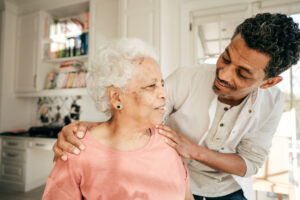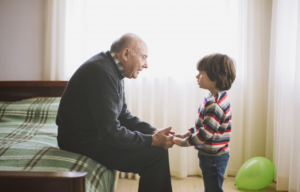At St. John’s, we understand the joys and the stress of providing care for persons living with dementia. Some days are amazing, others are difficult. And for you, at home, it can be even more challenging without the resources we have—backup, experts to talk to, colleagues to cheer us on and cheer us up.
So, we can offer some helpful tips. Take care of yourself. Build a support network for yourself with friends, family, professional colleagues, support groups, and other connections you may have. Use social networks (you may try connecting with our Facebook Community, ROC Dementia Caregivers) and the internet to stay in touch when in-person gatherings are not feasible. Plan a vacation with respite care for you—plan it months in advance if you can—so you can have it be something for which you can look forward.
Establish a schedule with your physician to maintain your own health and do not shortchange yourself—keep to it. If you do not already build in an exercise program, plan it as part of your daily routine—it is not just for you, it is for your loved one’s benefit as well.
At St. John’s, when we were talking about what advice we could give to caregivers at home, we asked Chaplain Chava (one of our resident chaplains at St John’s) and she told us, “find someone you can really tell the truth to. You need someone like that in your life. Most of the time, when people ask, ‘how are you doing,’ or ‘how is your loved one doing,’ you may be tempted to say, ‘fine, great, everything’s fine.’ But, everyone needs someone they can tell the truth to.”





